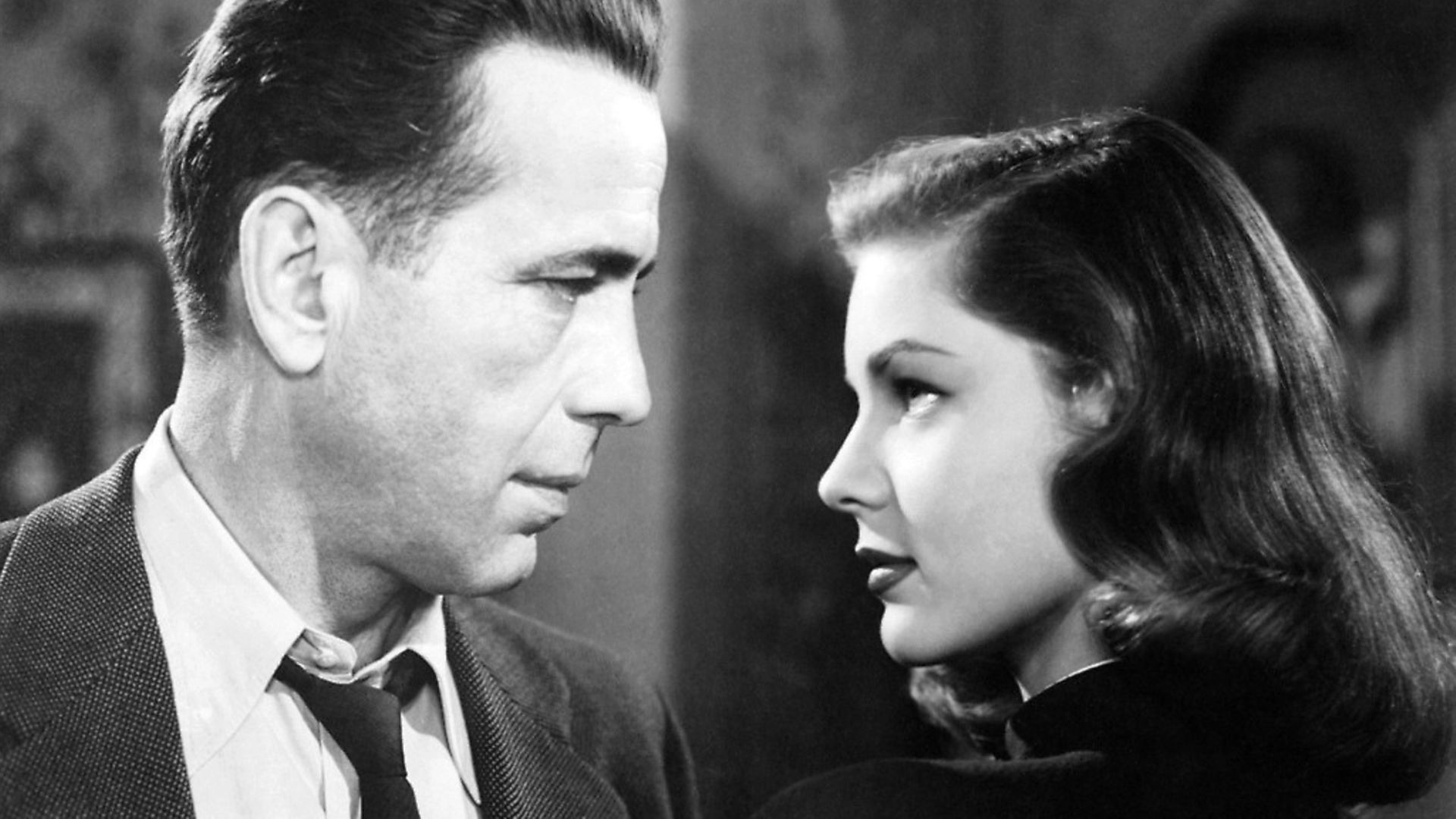
TIM WALKER recounts interviewing American actress Lauren Bacall, whose life remained shaped by Humphrey Bogart even after his death.
Lauren Bacall’s publicist was adamant that the star would talk to me about any subject under the sun, except her first husband, Humphrey Bogart. ‘She feels she’s talked about him quite enough,’ he said. ‘So I’d be obliged if you didn’t mention him at all when you meet her…’
Even as she was taking her seat beside me at Le Caprice, the fashionable London restaurant, it was his nickname that was first to cross her lips. ‘Bogey and I used to come to this joint after the war, not long after it’d been founded. He was very particular about where he ate, and, in those days, frankly, there wasn’t a lot of choice.’
Bacall’s second husband Jason Robards, whom it was generally reckoned she’d married on account of the fact he looked very much like her first husband, wearily called her ‘the Widow Bogart’. After eight years and endless re-runs of old Bogart-Bacall classics like The Big Sleep and Key Largo, Robards realised she was never going to be able to let him go and their marriage ended. Paul Dehn, who wrote the script to the 1974 film version of Murder on the Orient Express, was almost certainly making an in-joke when he had Bacall’s character droning on about ‘my first husband…’
Bogart had died of cancer in 1957, when Bacall had been just 32. My interview with her took place 30 years on, when she was making a now forgotten British thriller called Tree of Hands. Bogart was still uppermost on her mind and it was clearly her publicist – rather than her – who yearned for her to change the subject. ‘Bogey understood what it was to be a man in a way most men nowadays don’t,’ Bacall said. ‘He loved the outdoors, the sea, horses, all of that kind of stuff, but he also got that a real man could let a woman be a woman…’
She was wearing thick sunglasses, which made it difficult for me to work out what she was thinking, and, certainly to start with, she was a lot more interested in the menu than she was in me. ‘Interviews are like blind dates,’ she said. ‘You never know who the hell you’re going to end up with, so the one thing I always insist upon is choosing the restaurant. The conversation may be boring, but at least that way I can ensure I get a decent meal.’
I was barely 25, a Fleet Street newcomer just up from the Brighton Argus, and I should probably have appreciated the encounter a lot more, but there were moments when it seemed to border on parody. We were in the restaurant’s coveted corner table and at one point Melvyn Bragg came up to pay homage. ‘How lovely to see you, what are you doing?’ Two ‘mwaaah, mwaaah’ kisses on each cheek and then a laconic: ‘Oh, a bloody awful movie, darling.’
Bacall understood that the retention of stardom required continual vigilance. A picture a newspaper used of her was every bit as important – if not more so – than the accompanying words, and she’d vetoed me bringing along a photographer, too, lest it result in a study that was a little too candid. She’d thought to bring along few snaps of her own. She was then in her mid-sixties and looking good, but not one of the photos she offered could have been less than 10 years old.
The piece I wrote afterwards was not as reverential as it perhaps should have been, but I realise now that it was the intensity of the love she had for Bogart that made the rest of her life so challenging for her and made her sometimes a bit of a handful. She’d suggested we meet again the next time she was in London, but that never came to pass. The picture editor of the paper I then worked for was so incensed she’d tried to over-rule him that he deliberately chose the worst stock photo of her he could find.
Still, it was the beginning of one love affair in my life. Not with Bacall, alas, but with Le Caprice, which I still think is the most effortlessly stylish restaurant in the capital, if not the world.









